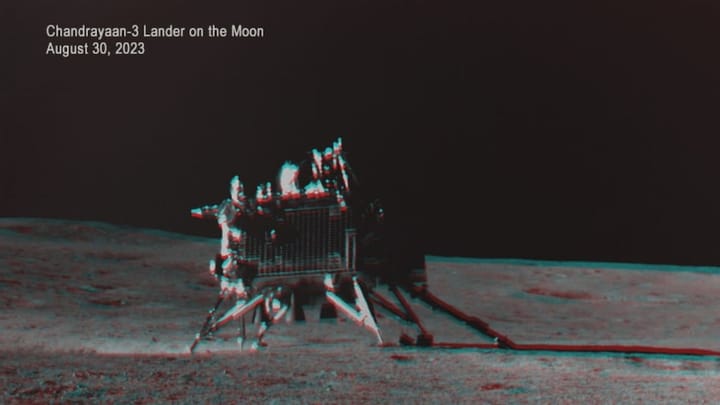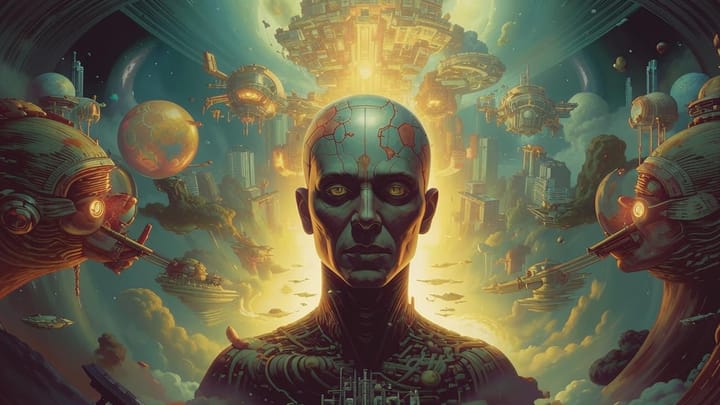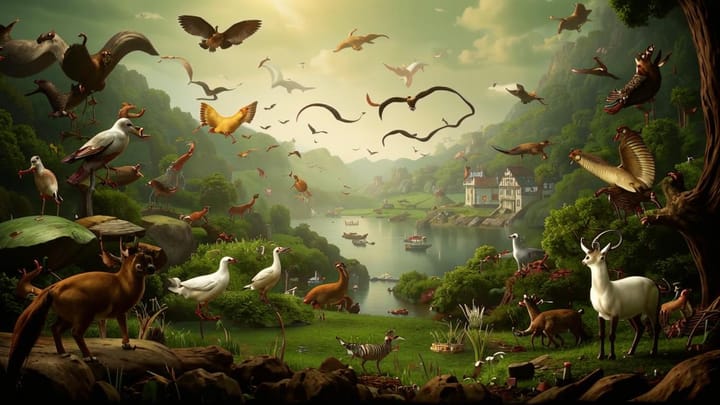What is Psychohistory?
PSYCHOHISTORY - ... Gaal Dornick, using nonmathematical concepts, has defined psychohistory to be that branch of mathematics which deals with the reactions of human conglomerates to fixed social and economic stimuli...

What's wrong with regular history?
There are many different systems of knowledge, each comprising both a set of facts and a method for organizing, generalizing, and analyzing them. Examples of such systems include mathematics, religions, natural sciences, and everyday superstitions. Humanity employs various systems depending on specific tasks and contexts.
The natural sciences, particularly physics, along with chemistry, astronomy, and more recently, biology, hold a special place among these systems. Their development and application over the last 400 years have underpinned the Industrial Revolution, urbanization, and demographic transitions, ultimately improving the quality of life for billions of people.
How does the methodology of the natural sciences differ from other systems of knowledge? Primarily, it relies on the use of experiment (observation, simulation) and theory in conjunction, not separately. In contrast, mathematics or religion serve as purely "theoretical" systems of knowledge, where experimental validation is impossible or even undesirable. Mathematics can describe any universe, not just the observable one. There is no purely mathematical, detached-from-observation method to describe our specific universe.
At the same time, folk traditions that connect, for instance, animal behavior with future seasons are purely "experimental" systems of knowledge. Although they often have some basis, they don't provide any meaningful explanation of observed regularities. Without such generalization, it becomes impossible to determine the boundaries of the applicability of these regularities, such as whether they work in certain regions, change with climate variations over centuries, and so on.
In addition to combining experimentation and theory, the scientific method places additional demands on both. Experiments must be reproducible and yield similar results under similar conditions. The theory must be expressed in mathematical language and describe phenomena and processes not only qualitatively but also quantitatively. The key consequence of these requirements is the predictive capability of the natural sciences, and it is this property that explains their success and enormous influence on human society.
It is evident that modern historical "science" and related fields like sociology and futurology do not meet these requirements. Hegel's famous aphorism, "History teaches us that man learns nothing from history," does not actually speak to the foolishness of people but rather to the uselessness of history for practical analysis of the present and prediction of the future.
What is the Purpose of Psychohistory?
Isaac Asimov, in his novel "Foundation," described the future science of psychohistory, from which we took the name for our center:
PSYCHOHISTORY - ... Gaal Dornick, using nonmathematical concepts, has defined psychohistory to be that branch of mathematics which deals with the reactions of human conglomerates to fixed social and economic stimuli...
... Implicit in all these definitions is the assumption that the human conglomerate being dealt with is sufficiently large for valid statistical treatment. The necessary size of such a conglomerate may be determined by Seldon's First Theorem which... A further necessary assumption is that the human conglomerate be itself unaware of psychohistoric analysis in order that its reactions be truly random...
The basis of all valid psychohistory lies in the development of the Seldon Functions which exhibit properties congruent to those of such social and economic forces as...
Today, this science is in its infancy and goes by various names, such as cliodynamics, meta-history, and others. This science aims to replace history, much like how Newtonian physics replaced Aristotelian physics and chemistry replaced alchemy. We can observe the transition from an outdated knowledge system to real science happening right now in biology and especially in its advanced branches, like genetics and cognitive science.
We can rightfully expect that creating even the very basis of psychohistory will have revolutionary consequences. True, not imagined, understanding of historical processes and societal development will reshape the entire political landscape. Instead of groping for ways to improve society through trial and error, conscious planning of the future will take its place.
The Equation of Humanity's State
It is reasonable to assume that humanity can be described by a vector S, which we will refer to as its state. This vector is constructed upon a set of coordinates that should be meaningful and measurable, such as:
- Population size and it's age structure.
- GDP and other economic indicators.
- Social class, caste, ethnic structure.
- Urbanization.
- Religion and culture, including language.
- Technological level.
The precise list of these coordinates is yet to be determined.
The state S evidently changes over time. This dependence is what we call the equation of humanity's state.
Clearly, the state doesn't change merely with the passage of time. Firstly, there are internal factors of societal development, such as class struggle and national liberation movements. Importantly, the state at a given moment depends not only on the preceding moment but also on many others due to humanity's capacity for memory. It seems that the weights corresponding to the importance of states in preceding moments should be smaller the further back in time these moments are, although exceptions are possible.
Secondly, humanity exists within an environment that acts as an external factor in its development. This includes geography (including rivers, coastlines, soils, and mineral deposits) and climate (including the January isotherm, humidity), which change very slowly over time. Crucially, the anthropogenic factor can also influence the state of the external environment.
Thirdly, random events like volcanic eruptions have an impact, as does the role of individuals in history.
We will not consider other potential influences on changes in humanity's state, such as alterations in human biology or the active application of as-yet-undiscovered laws of psychohistory.
A similar equation of state can be formulated for individual societies, with an additional factor describing the influence of neighboring societies. The sum of equations for all societies should yield the equation of humanity's state.
The identification of the coordinates upon which the state vector is built and the functions that describe the influence of the factors described above represents the subject of psychohistorical research.



Comments ()